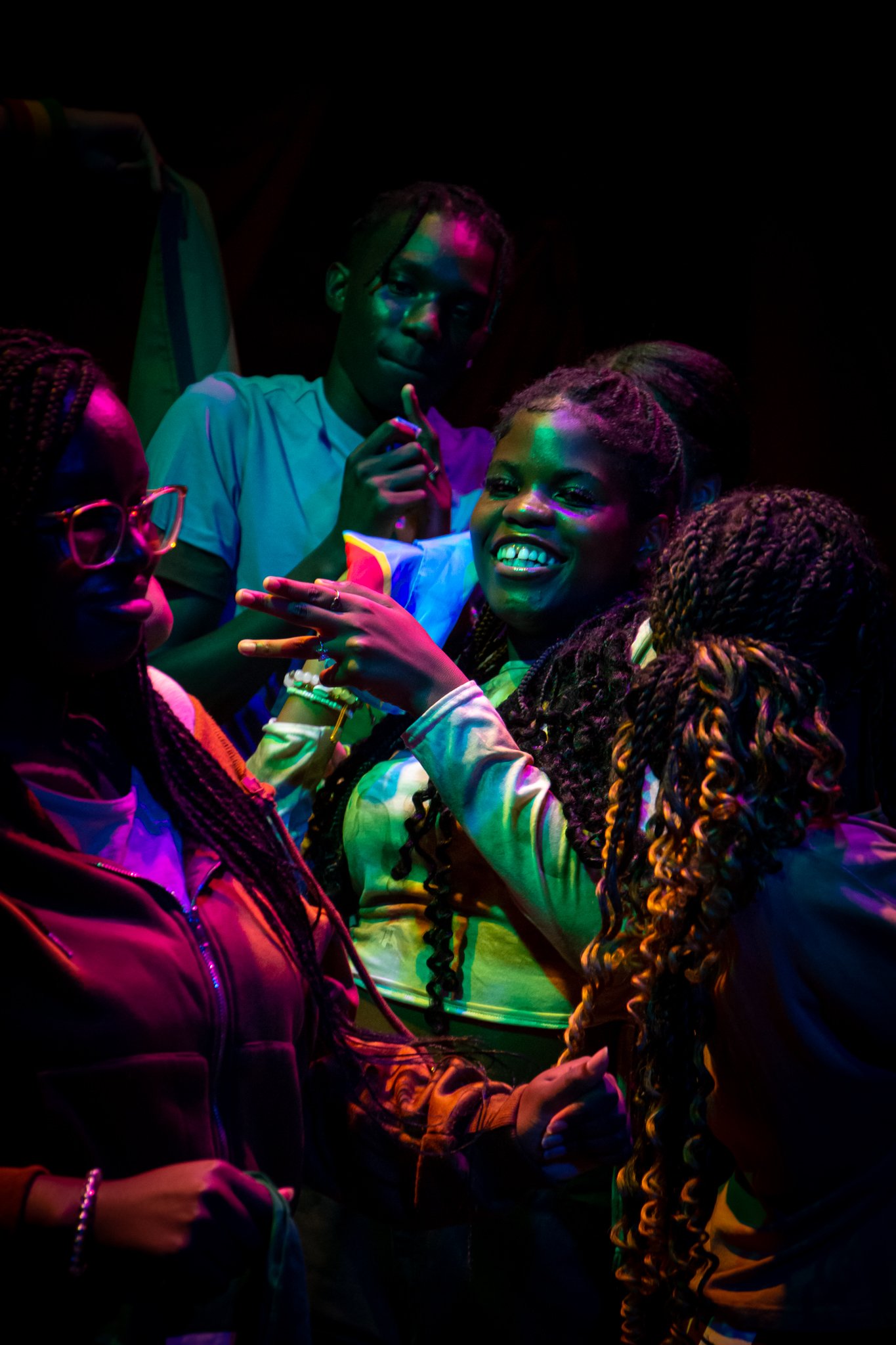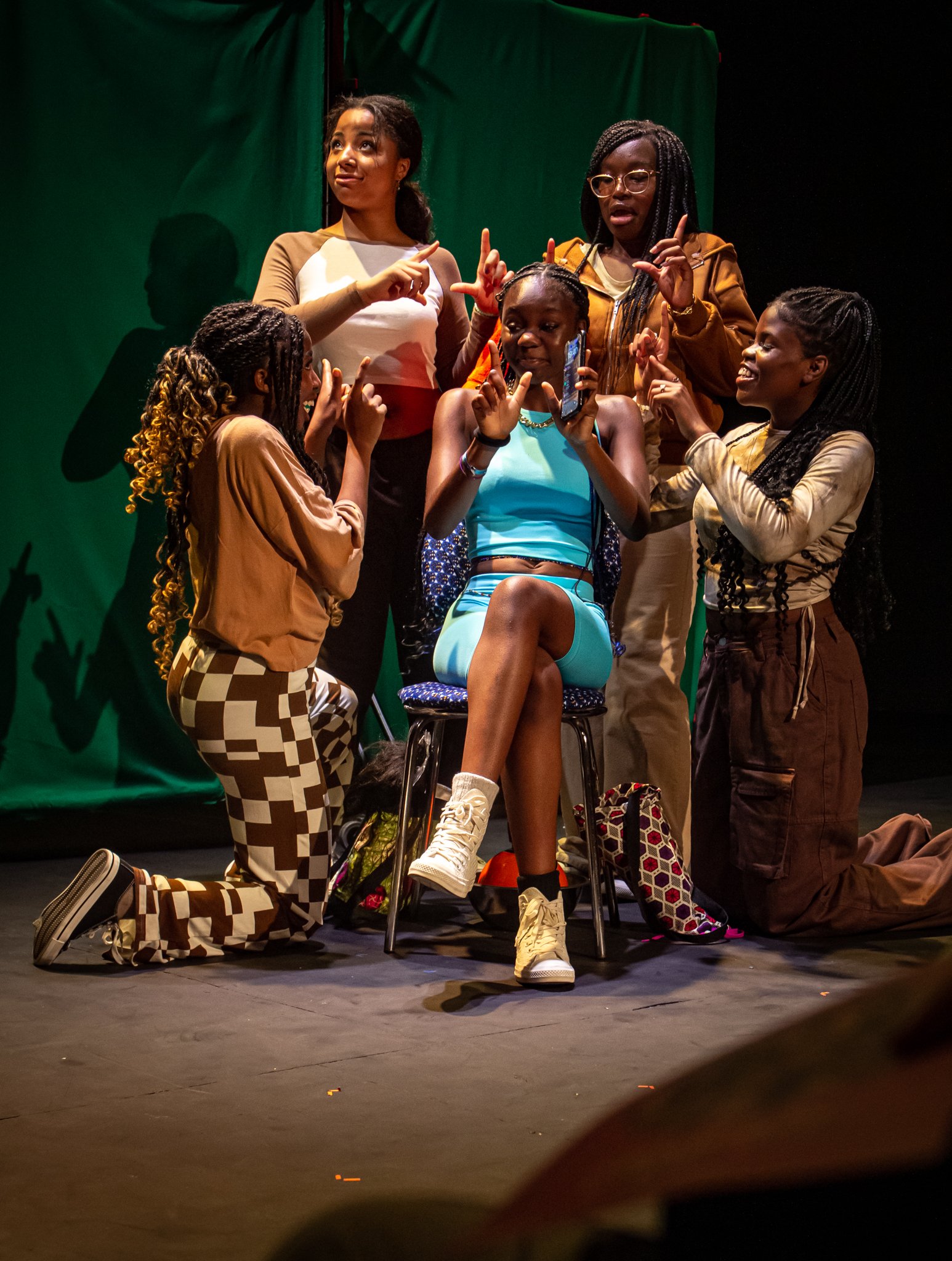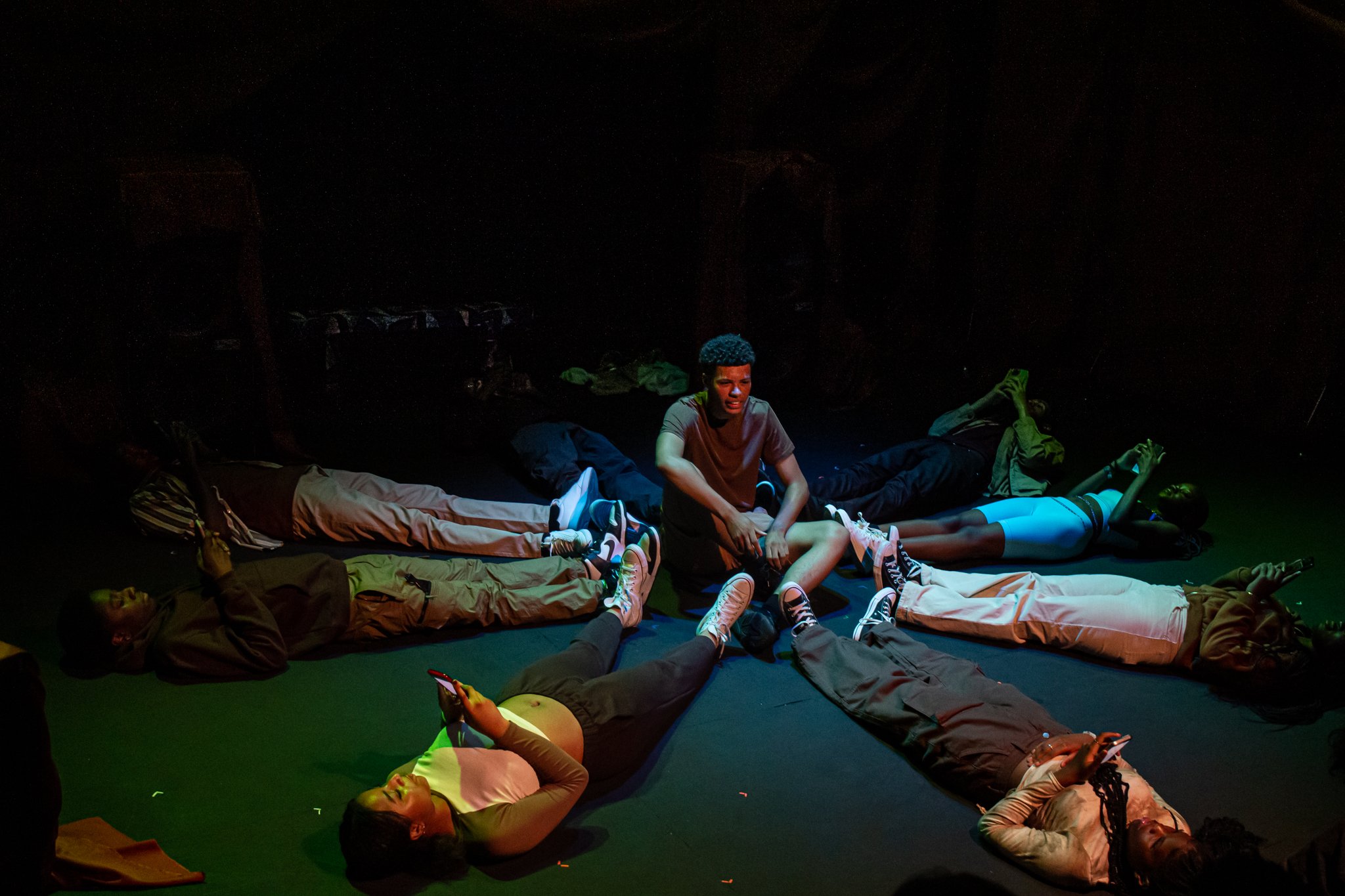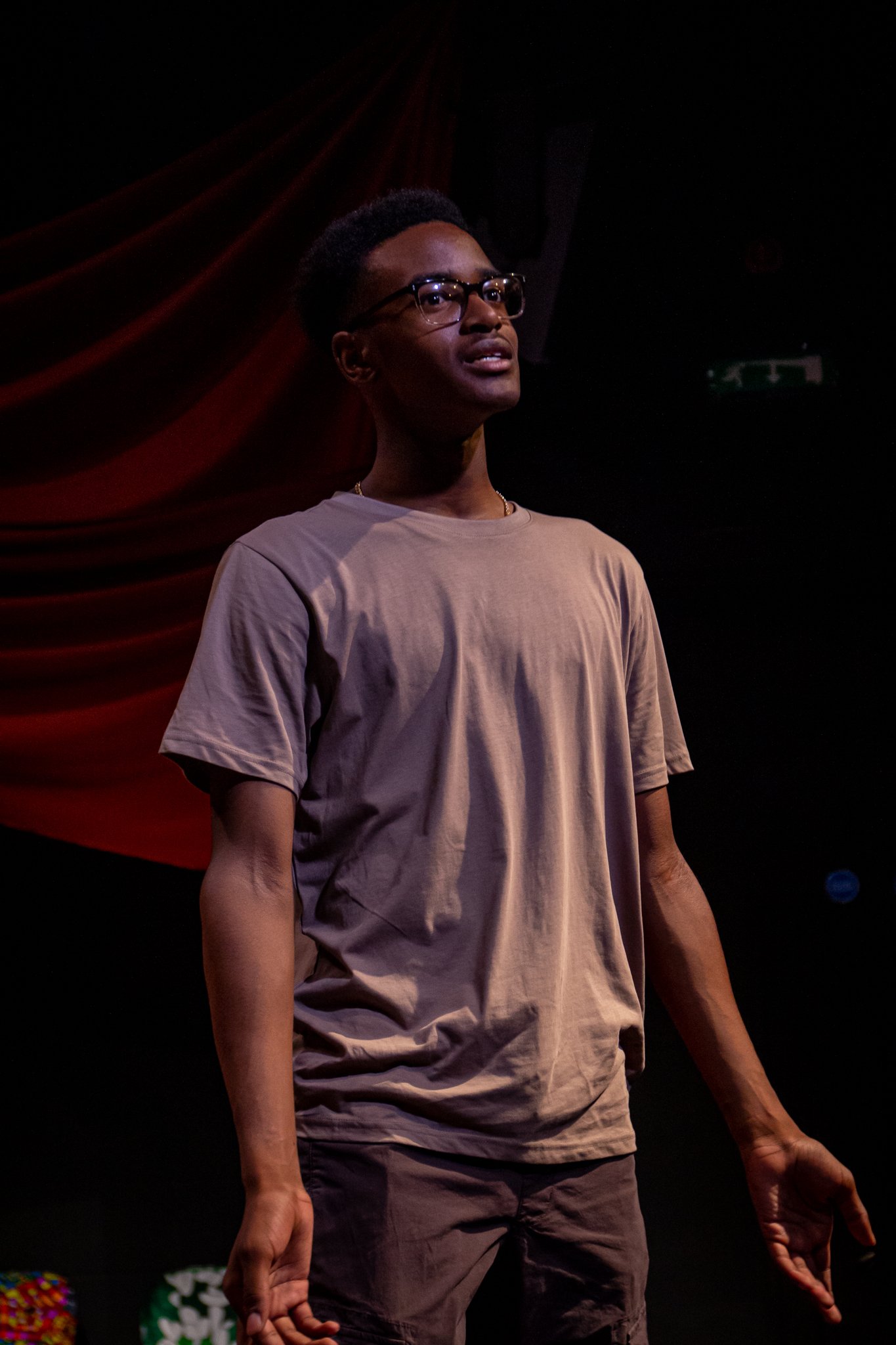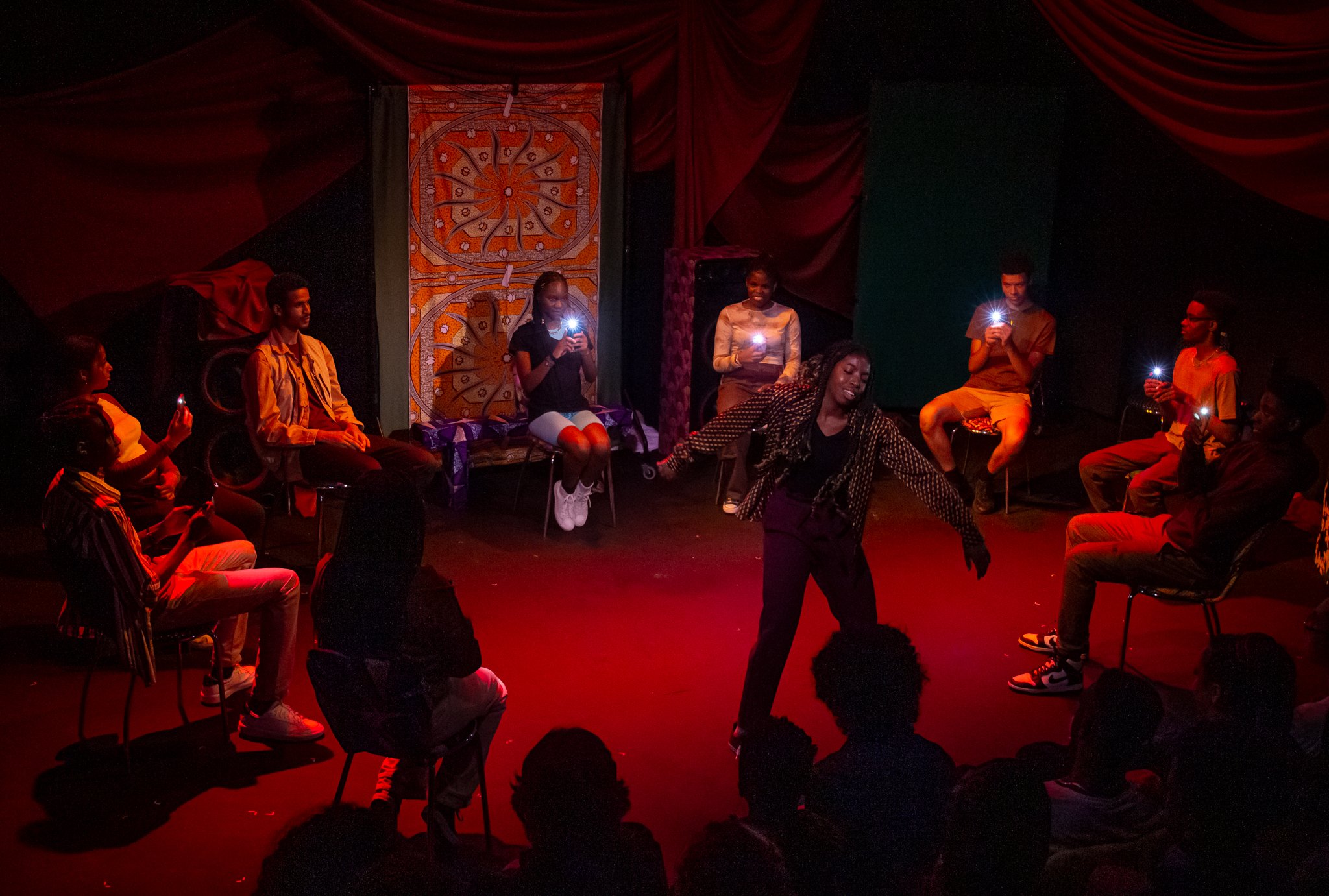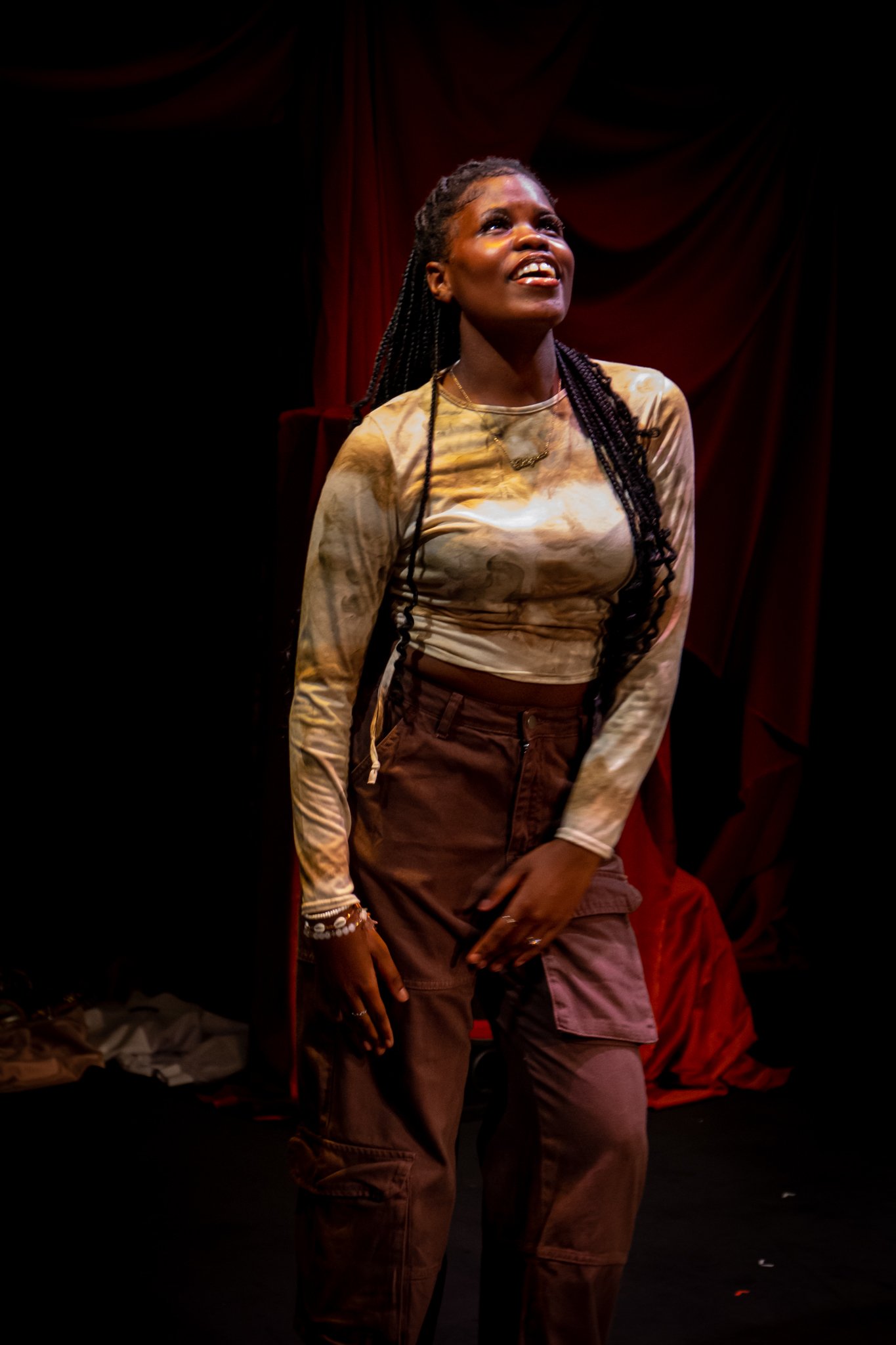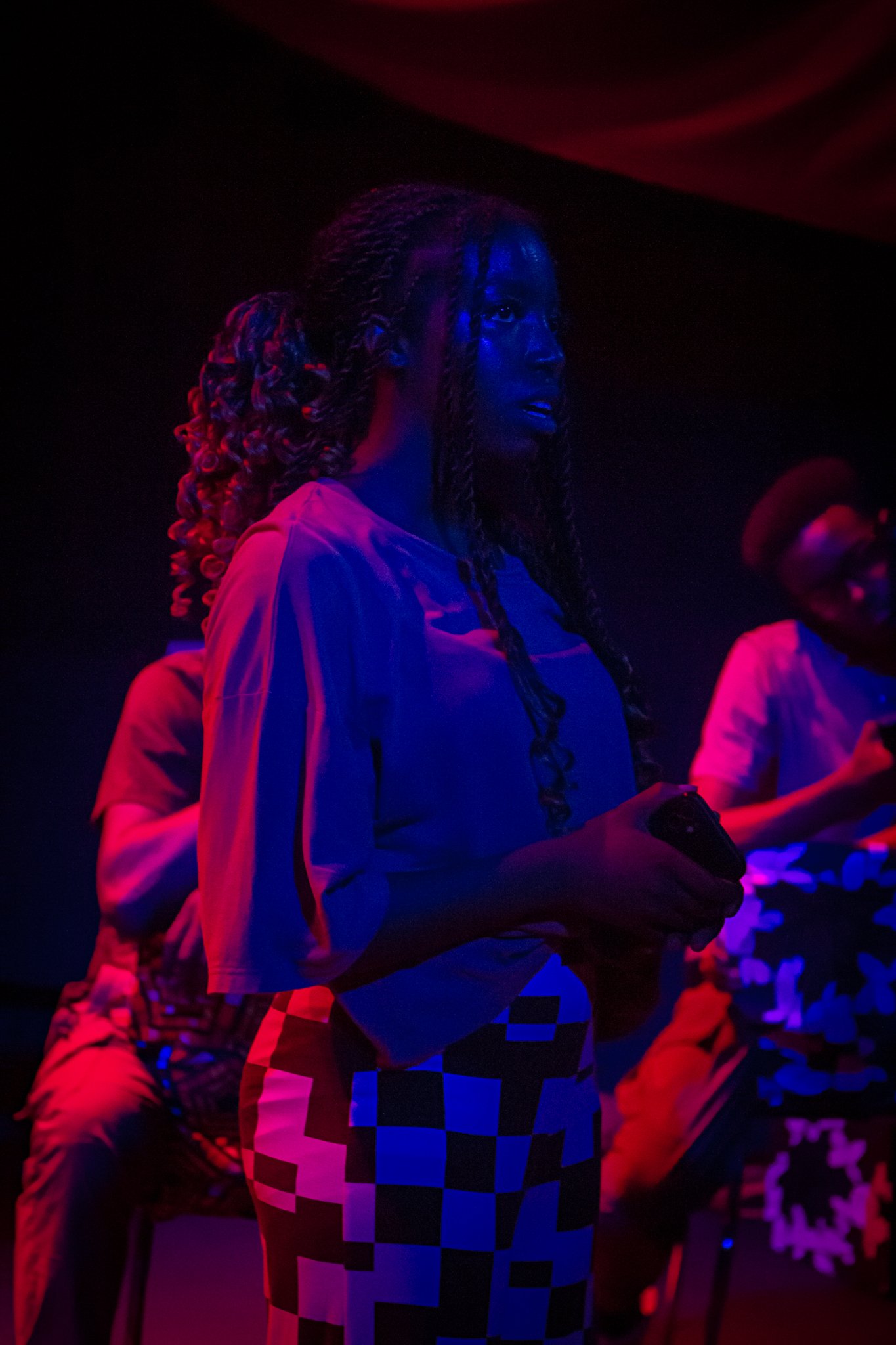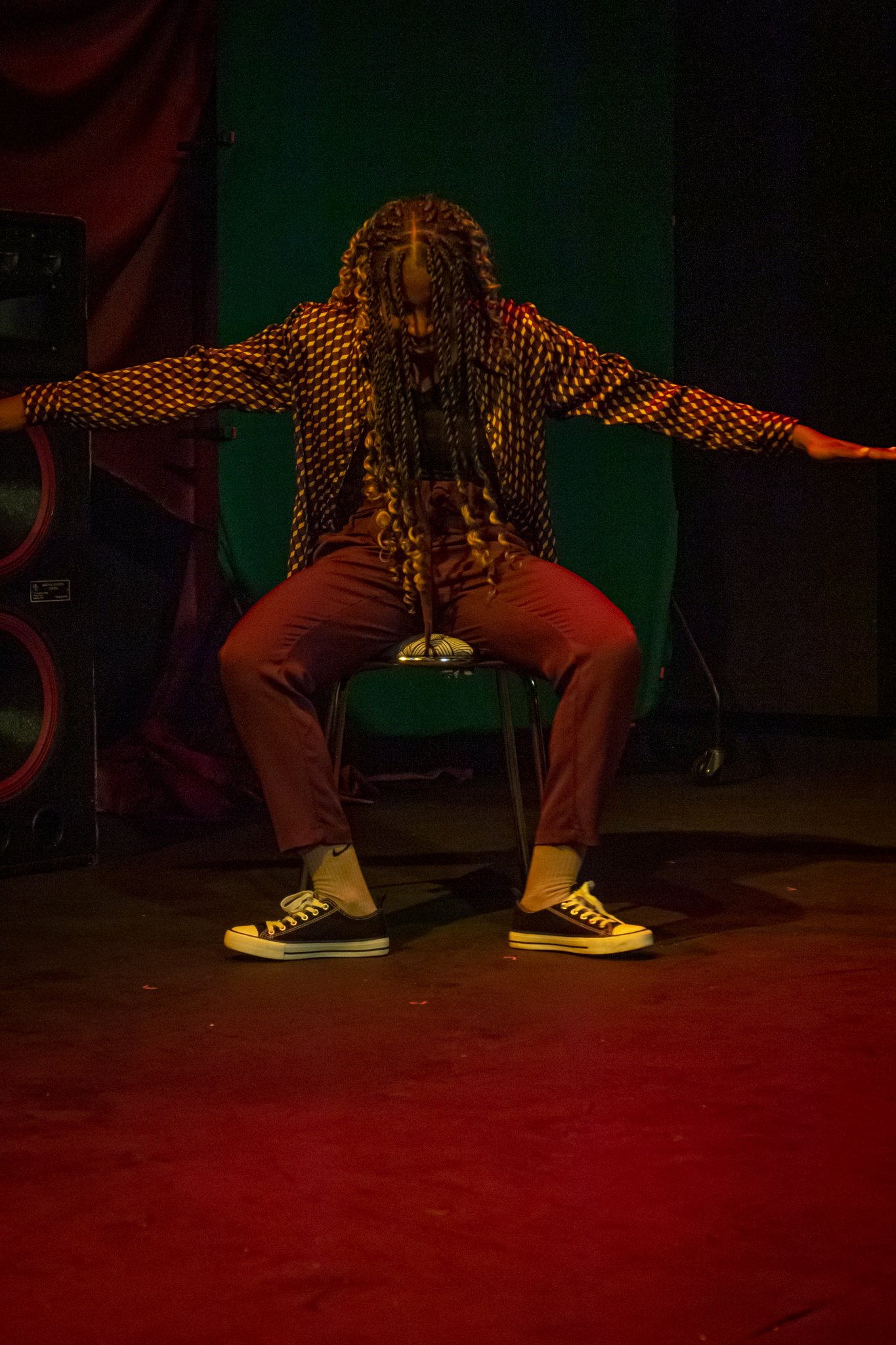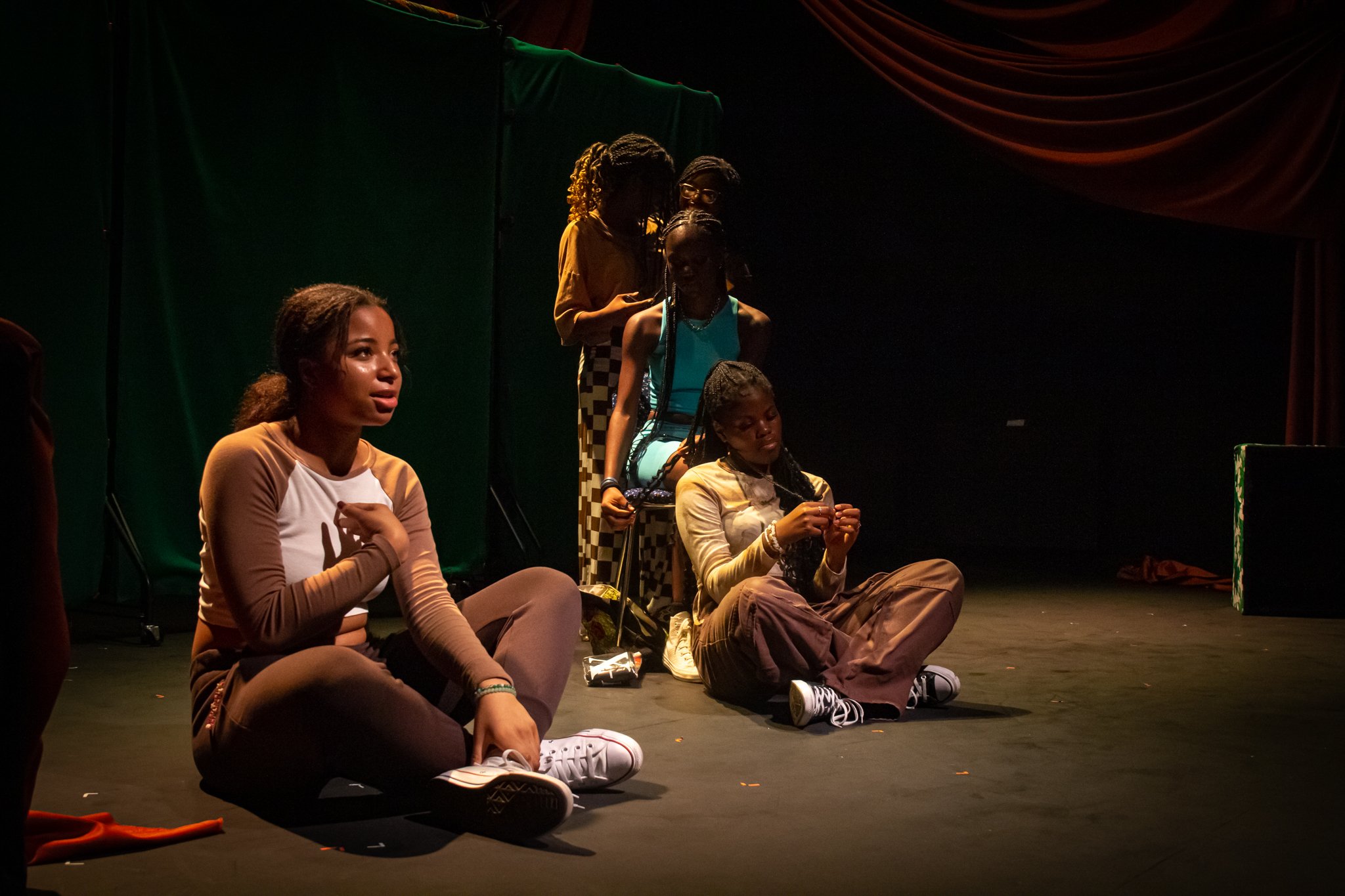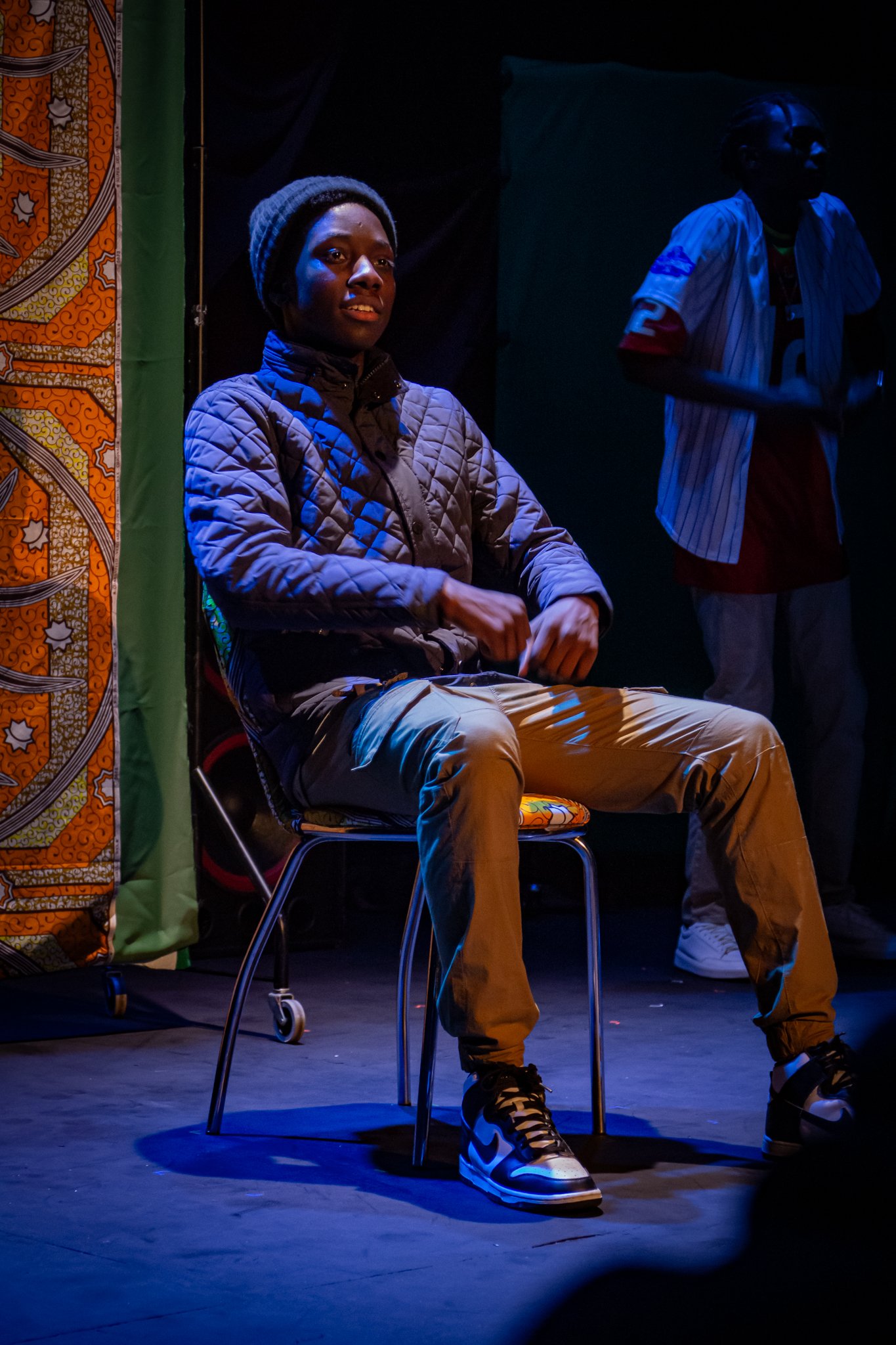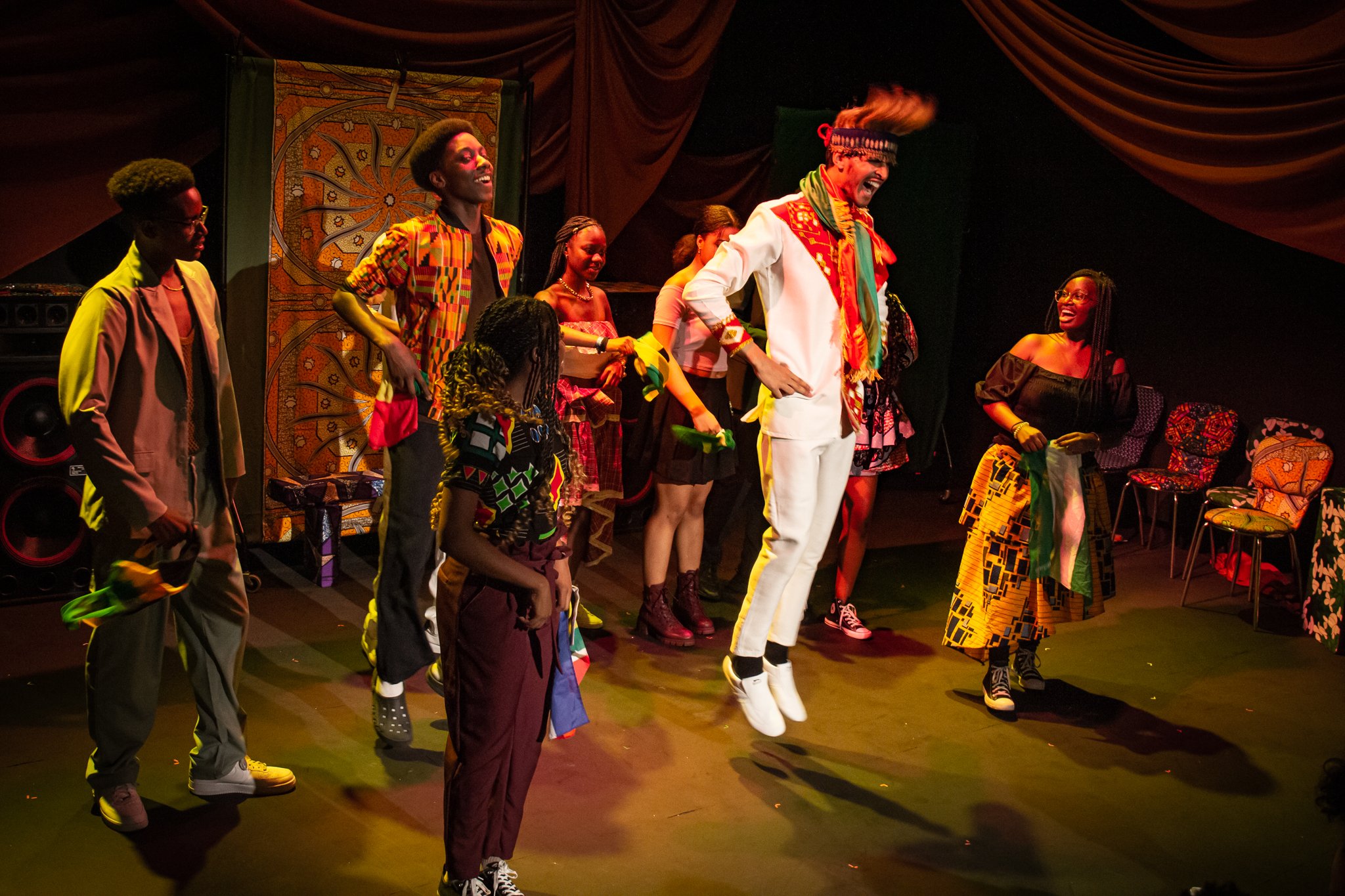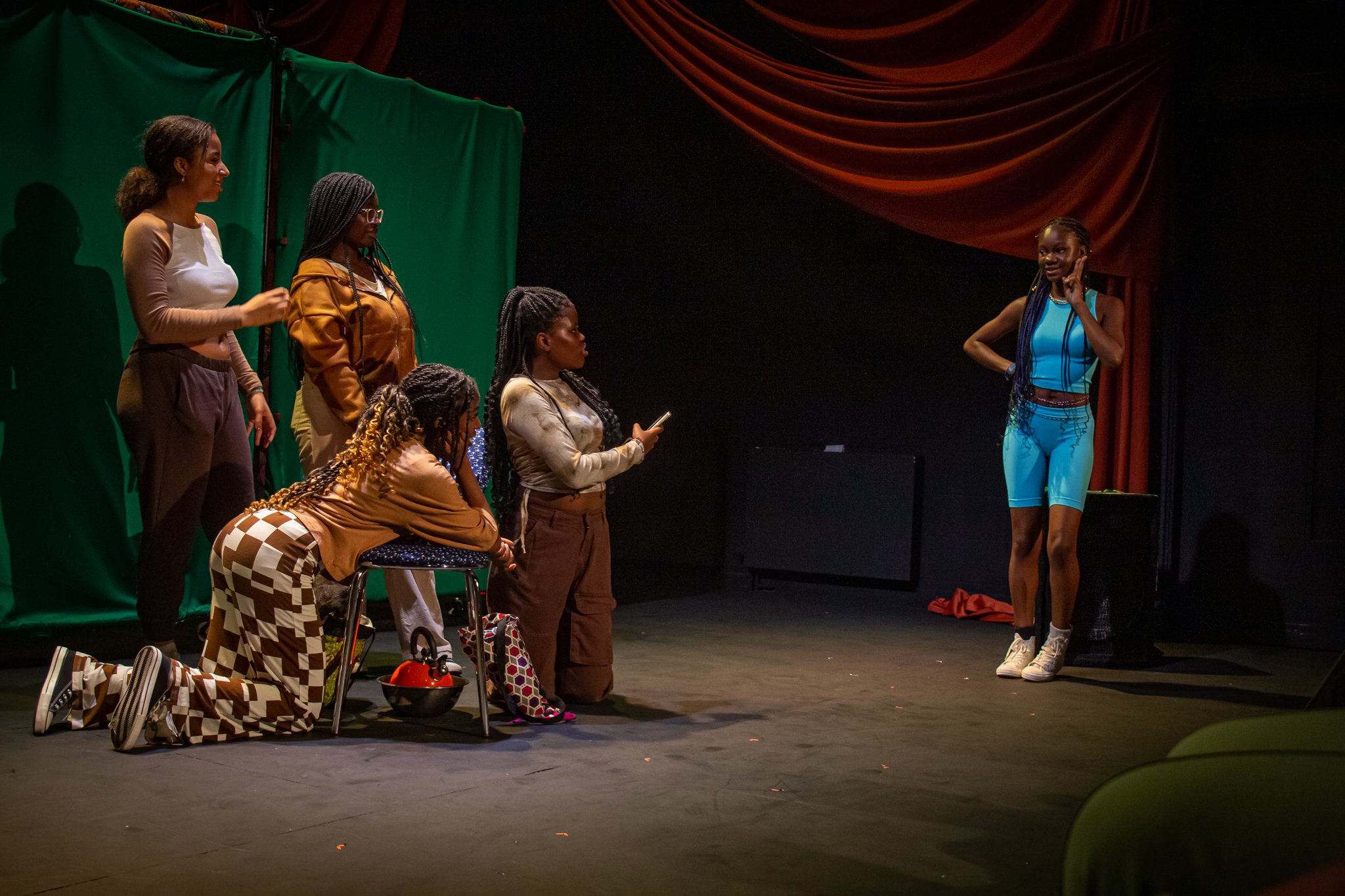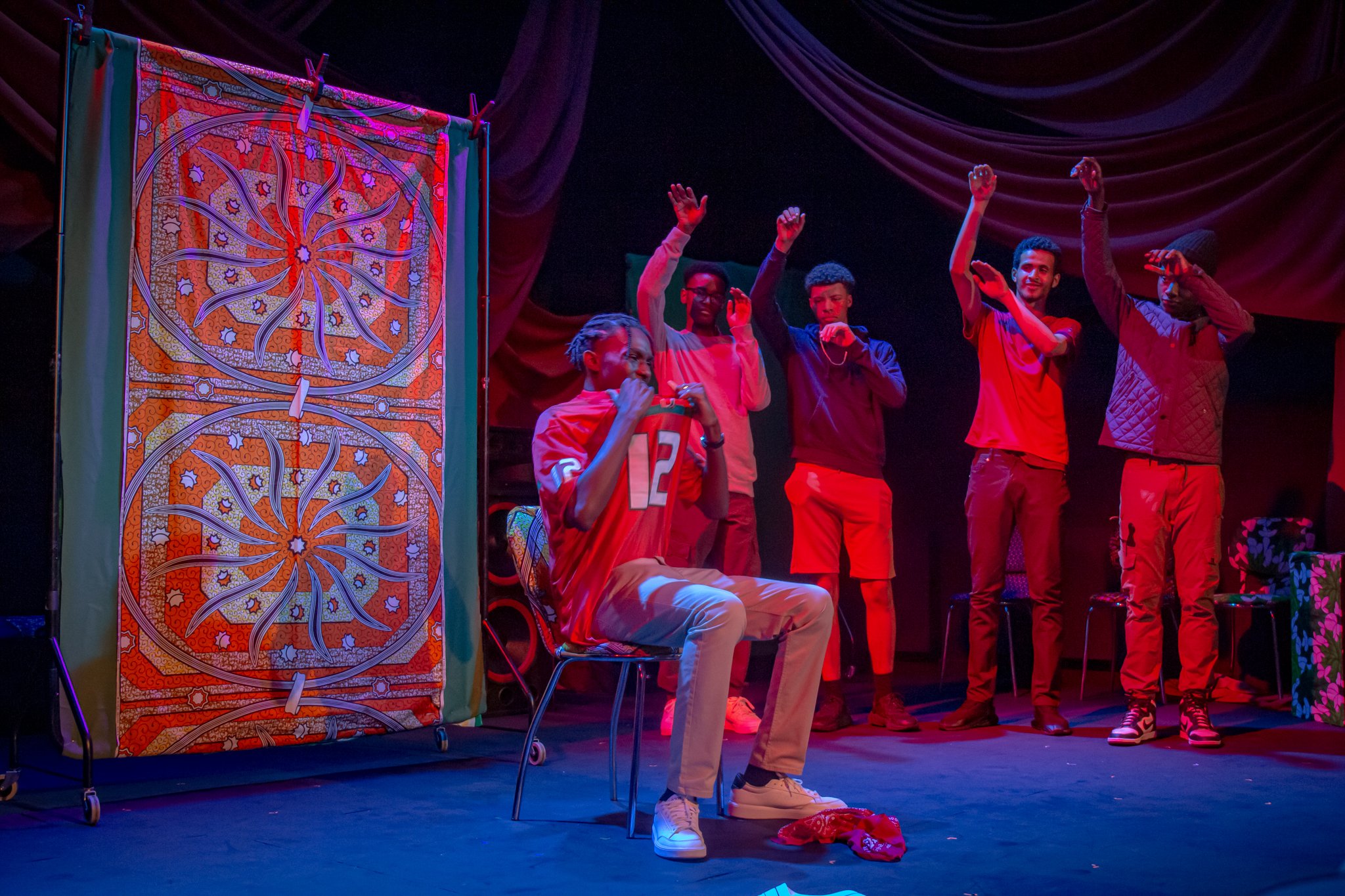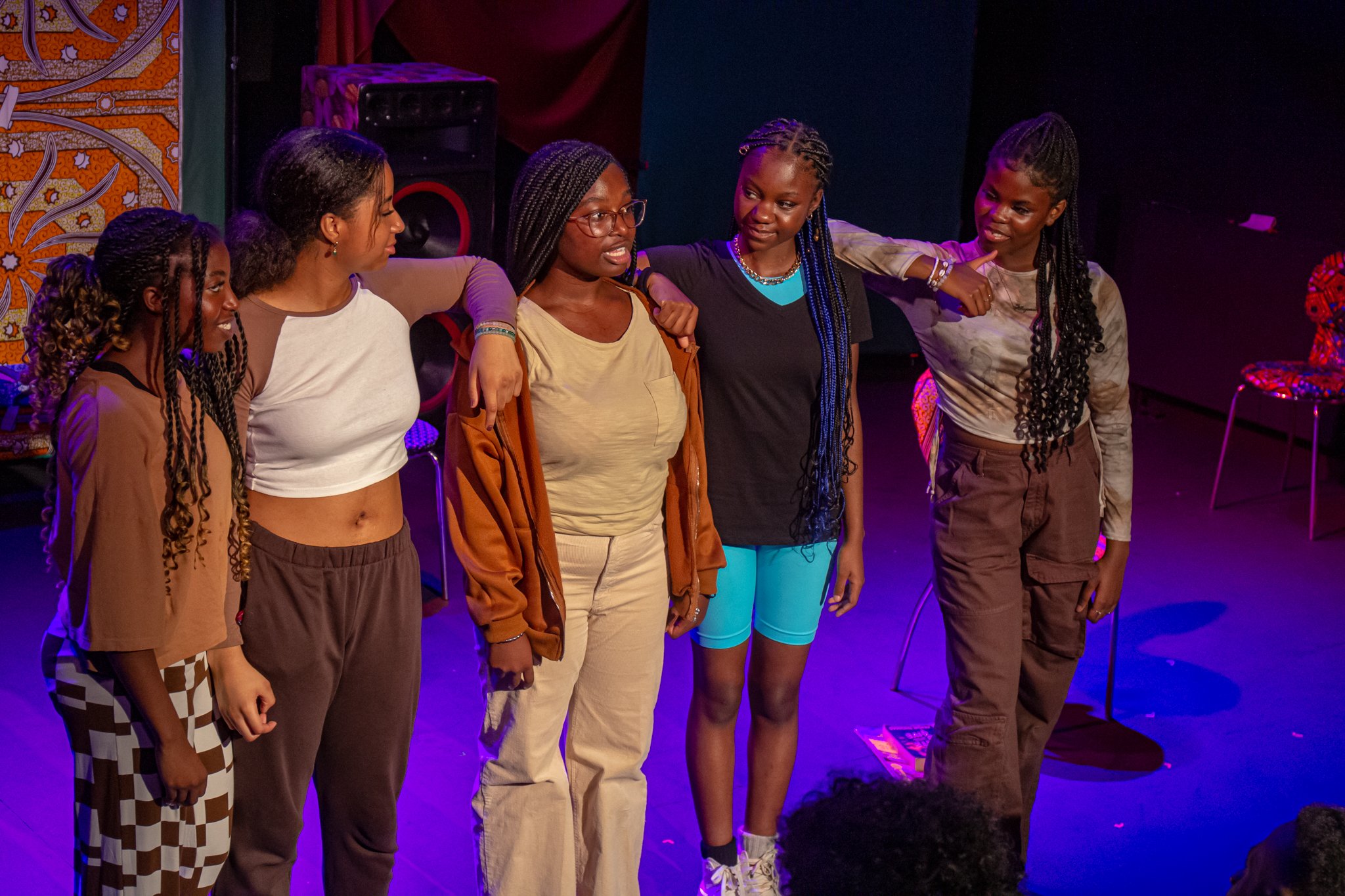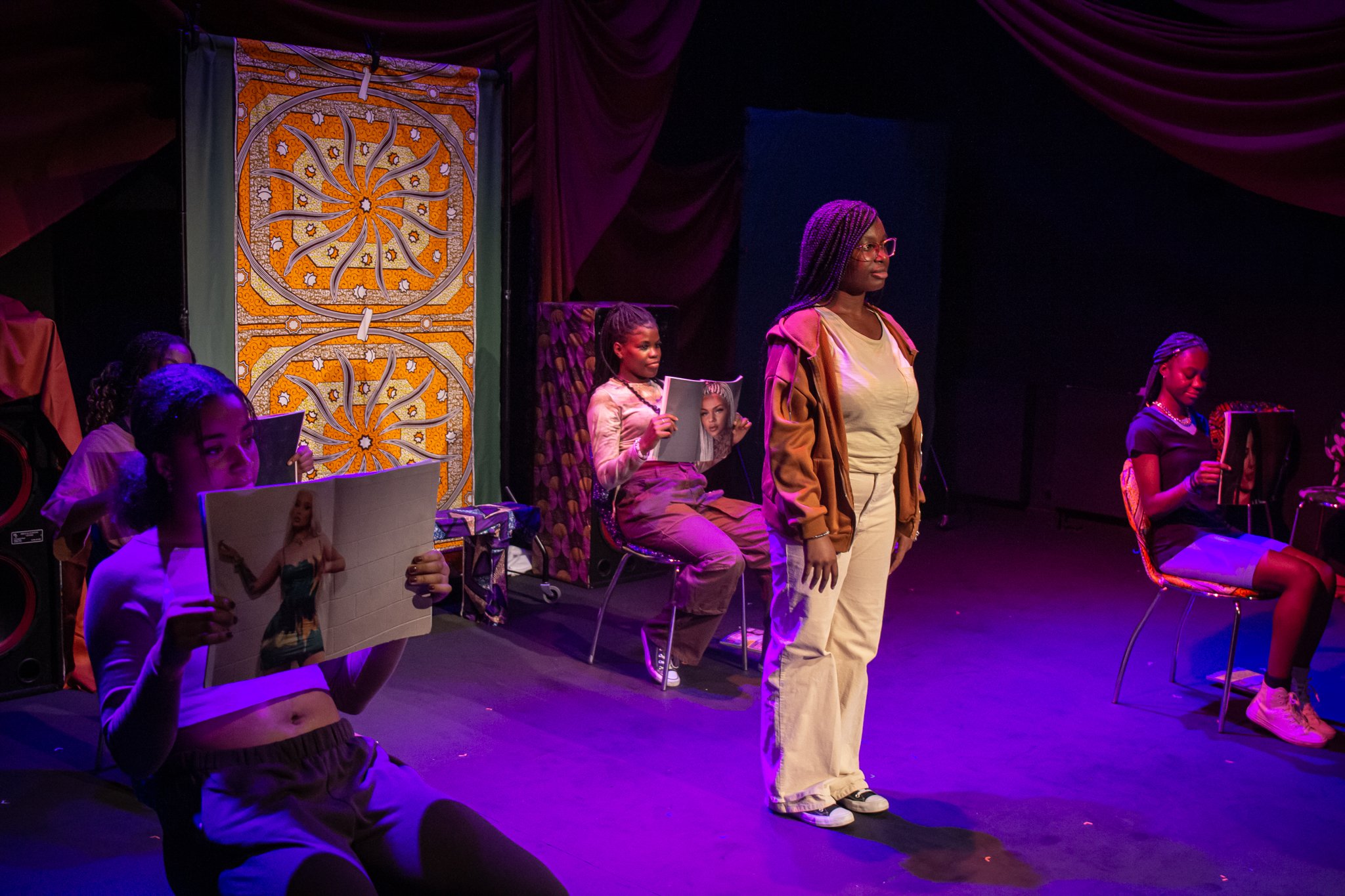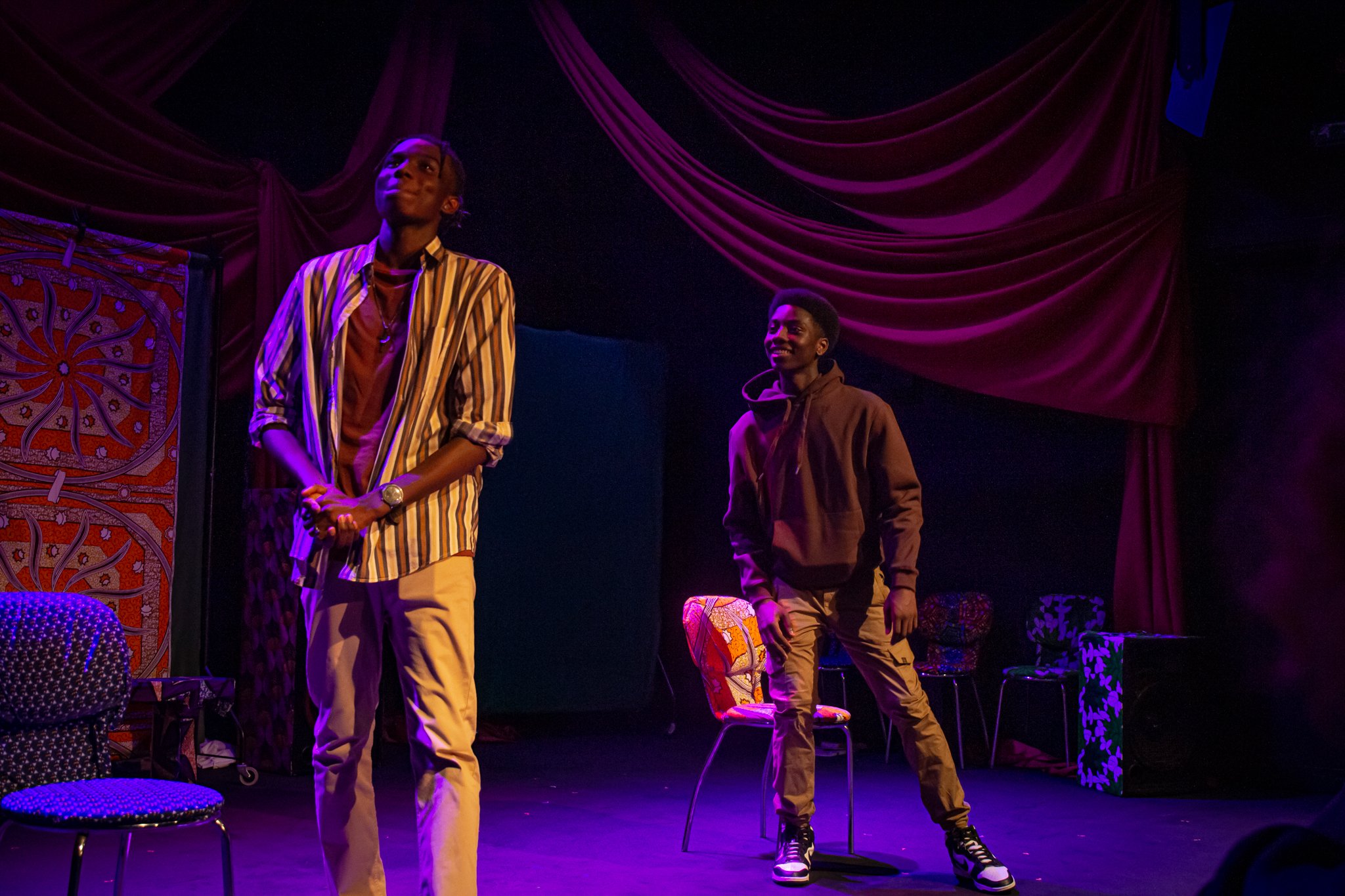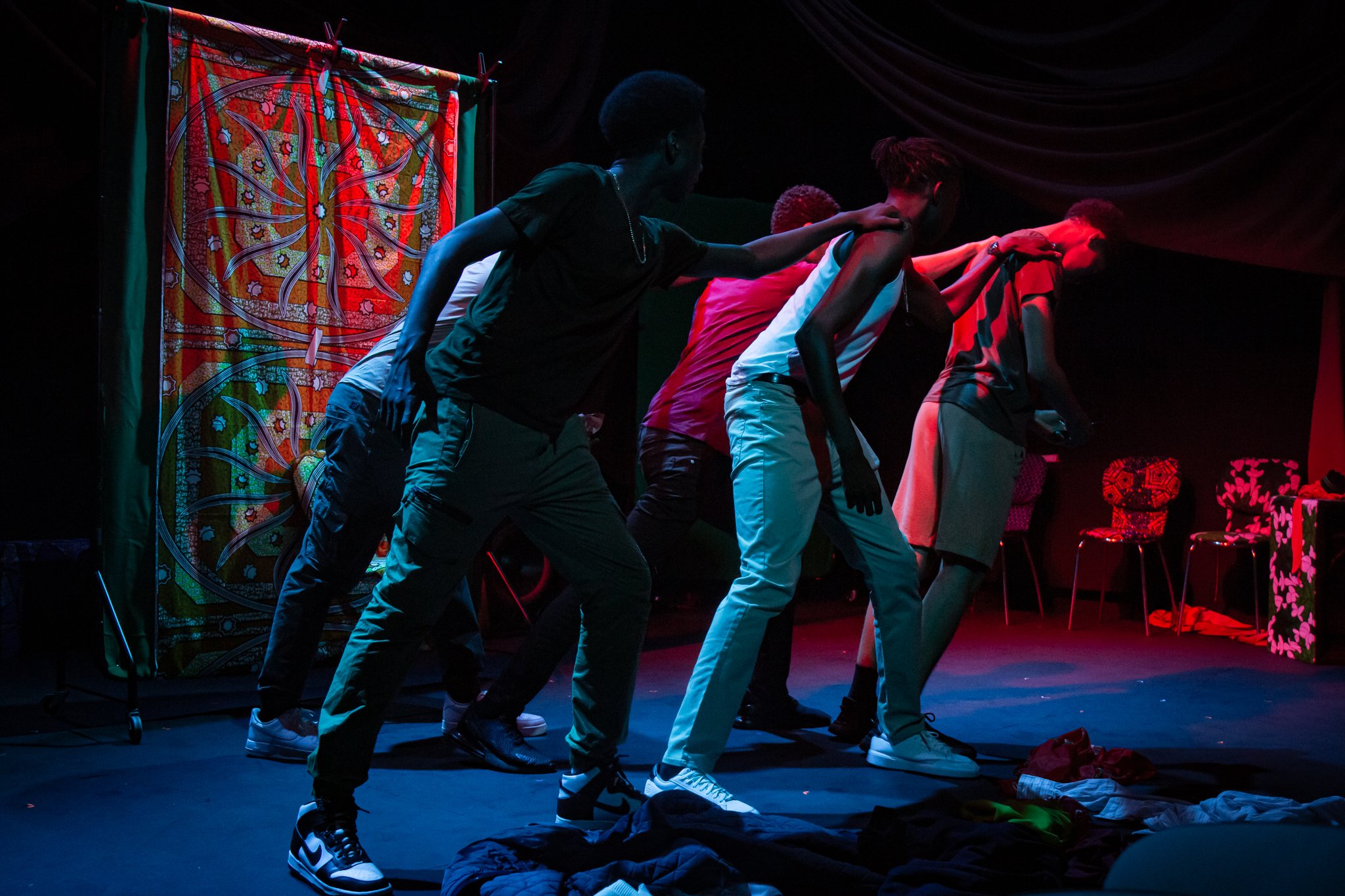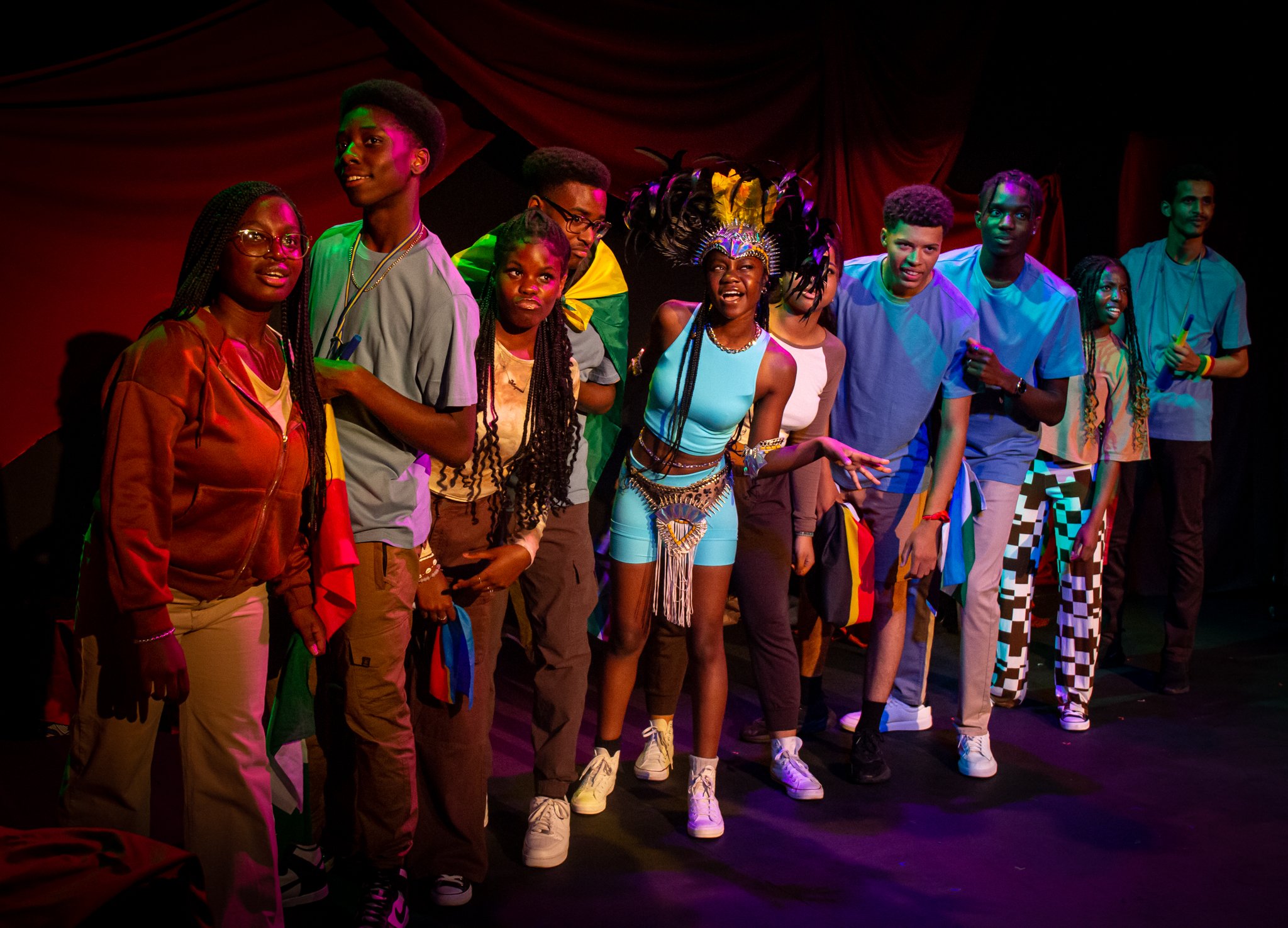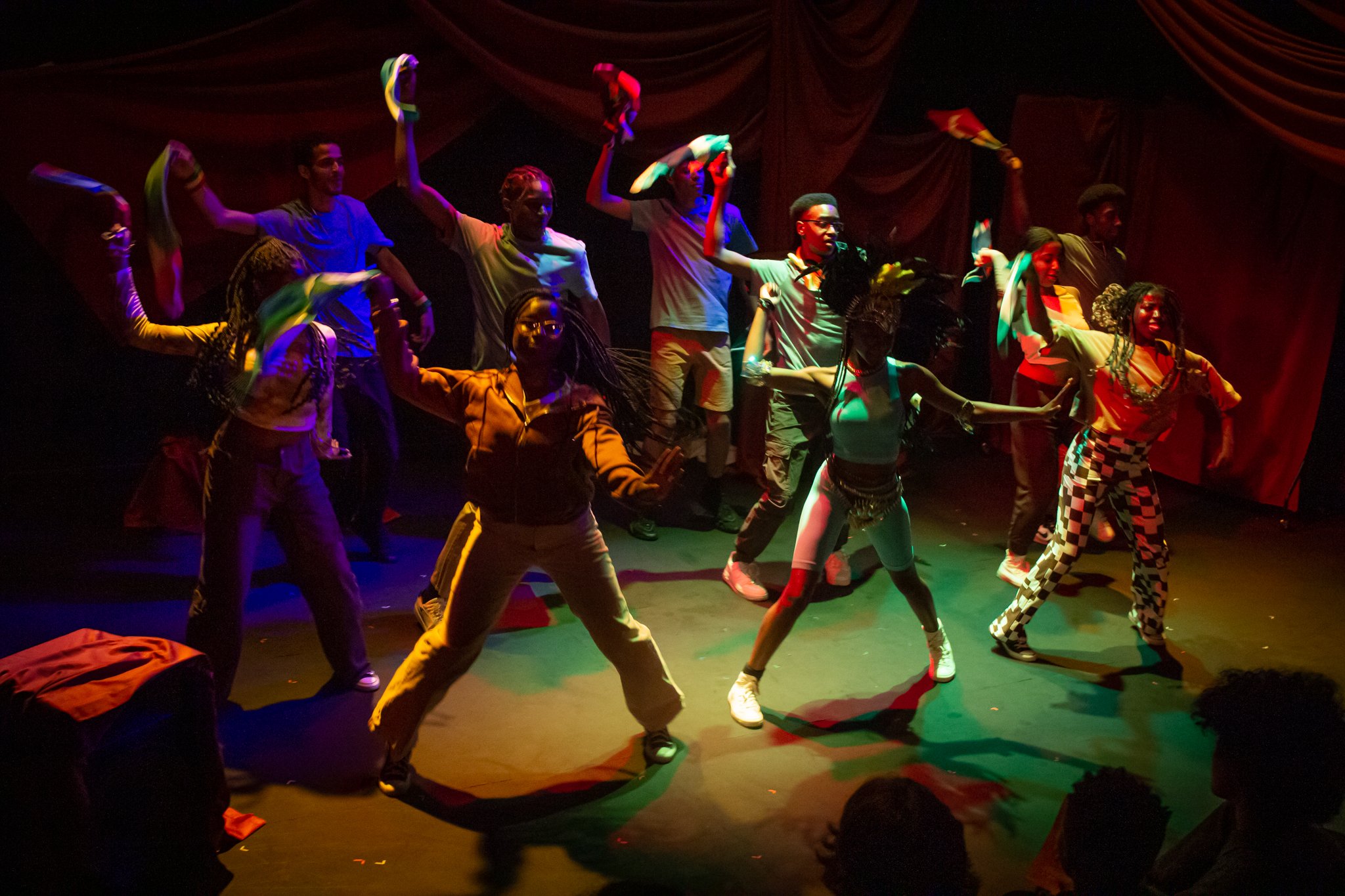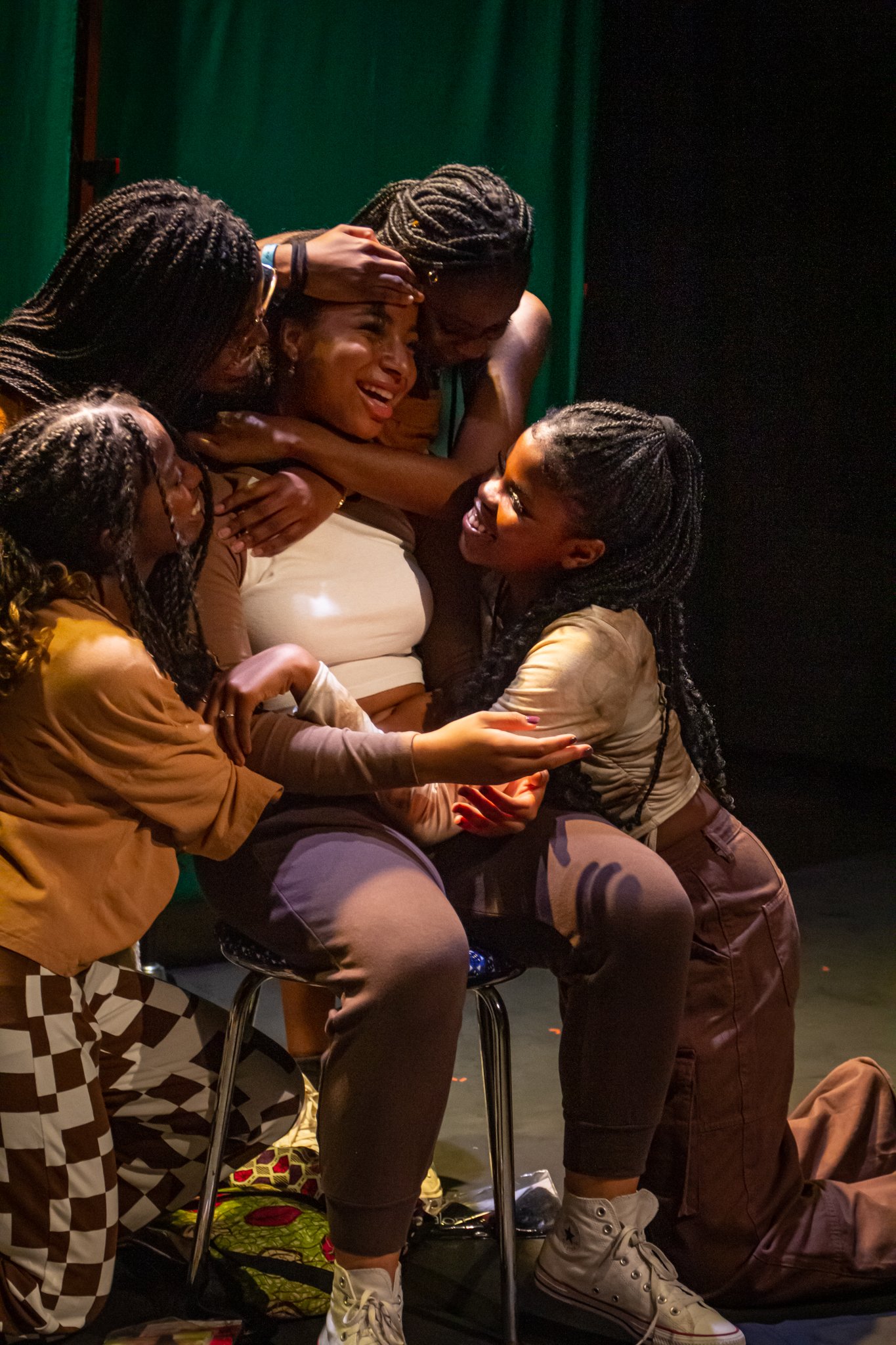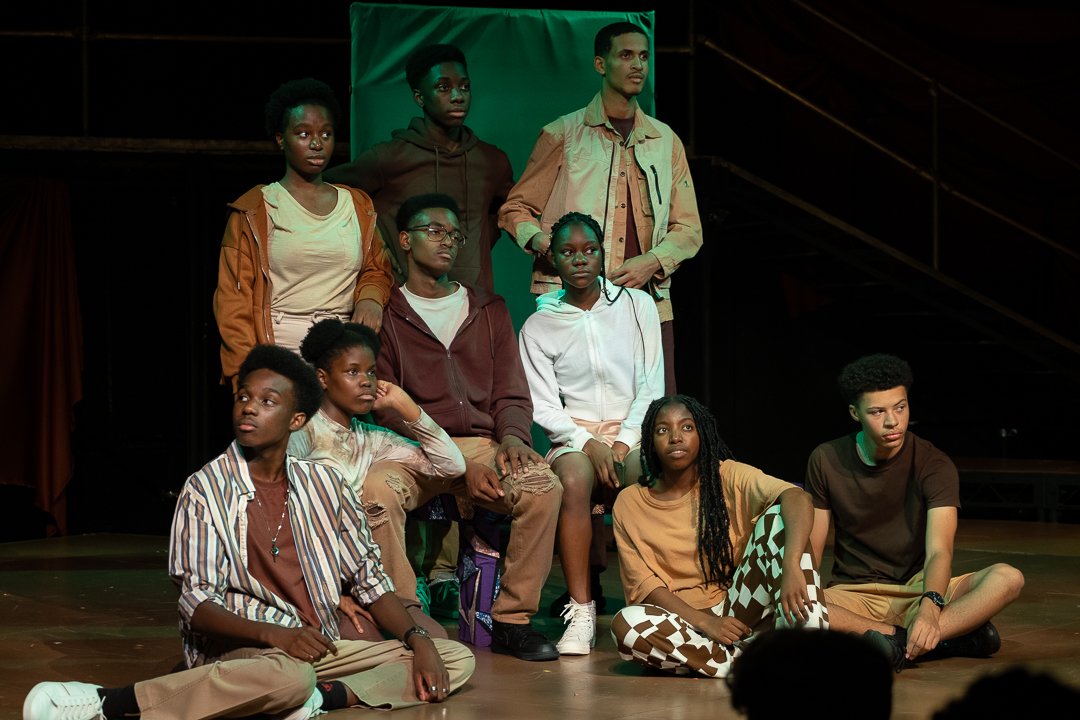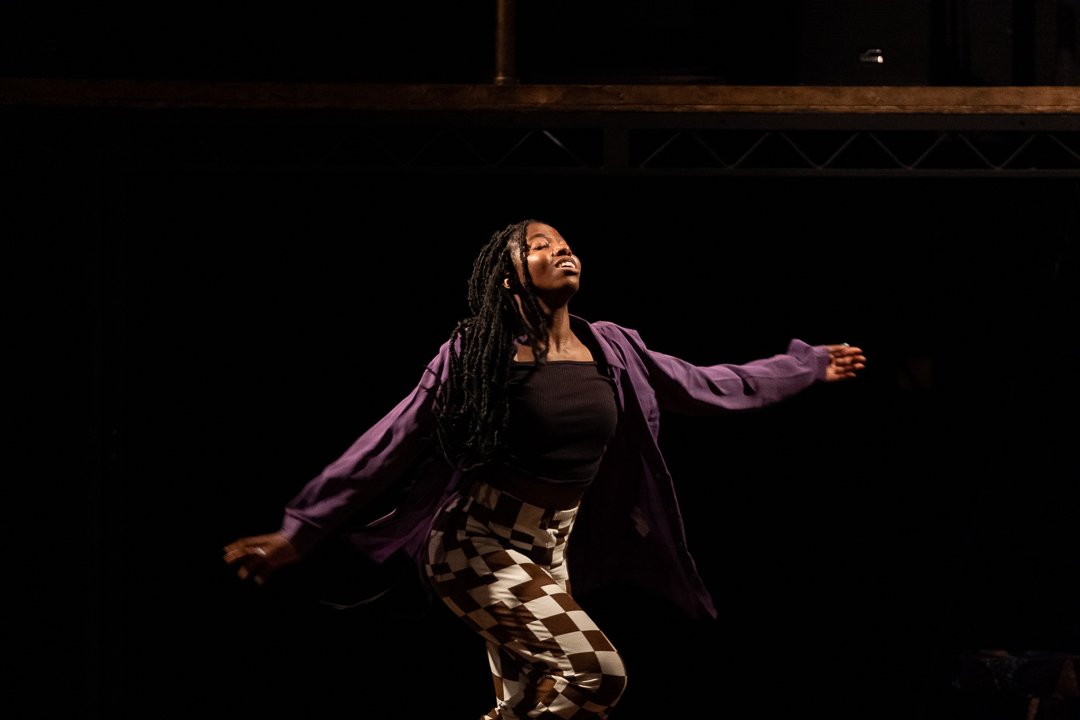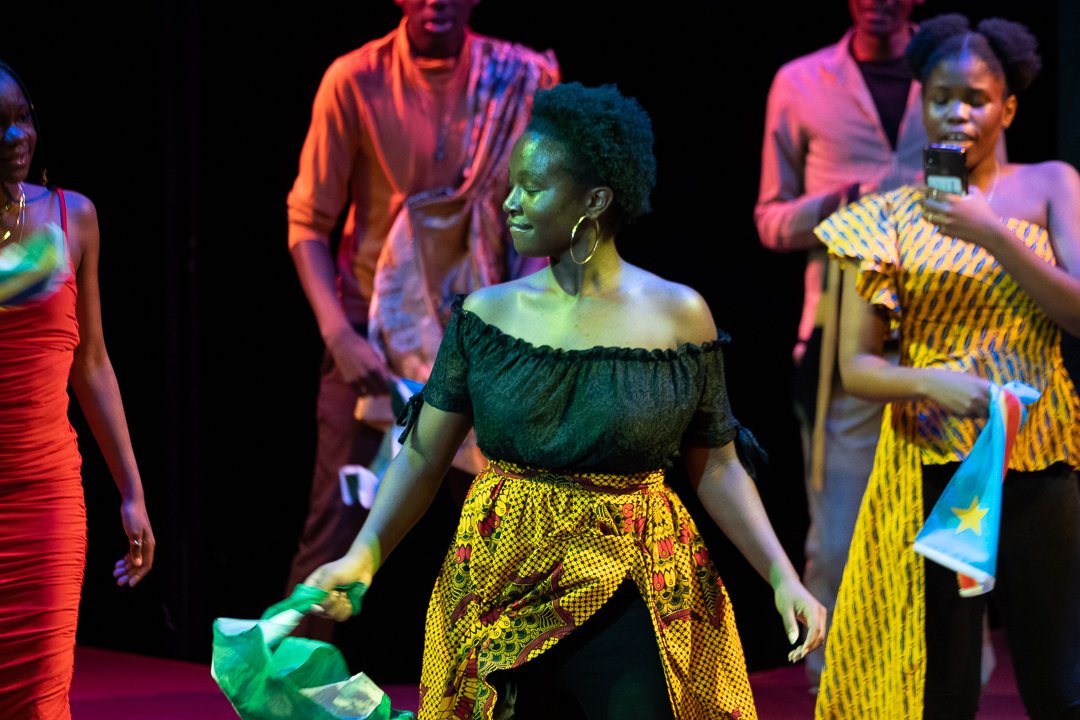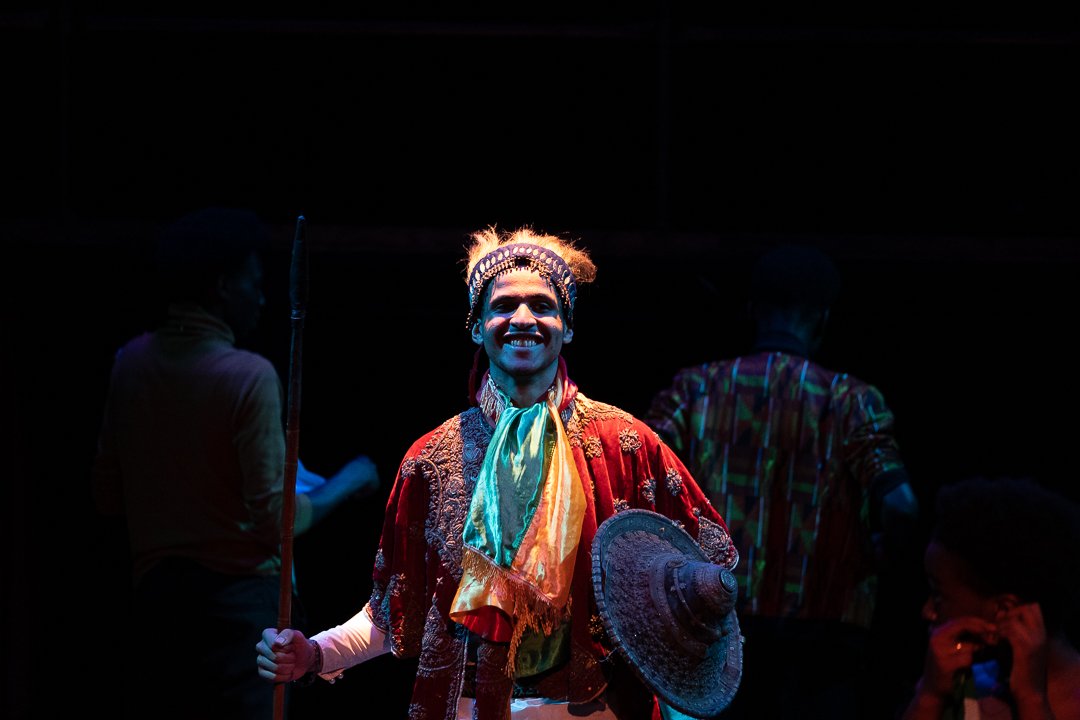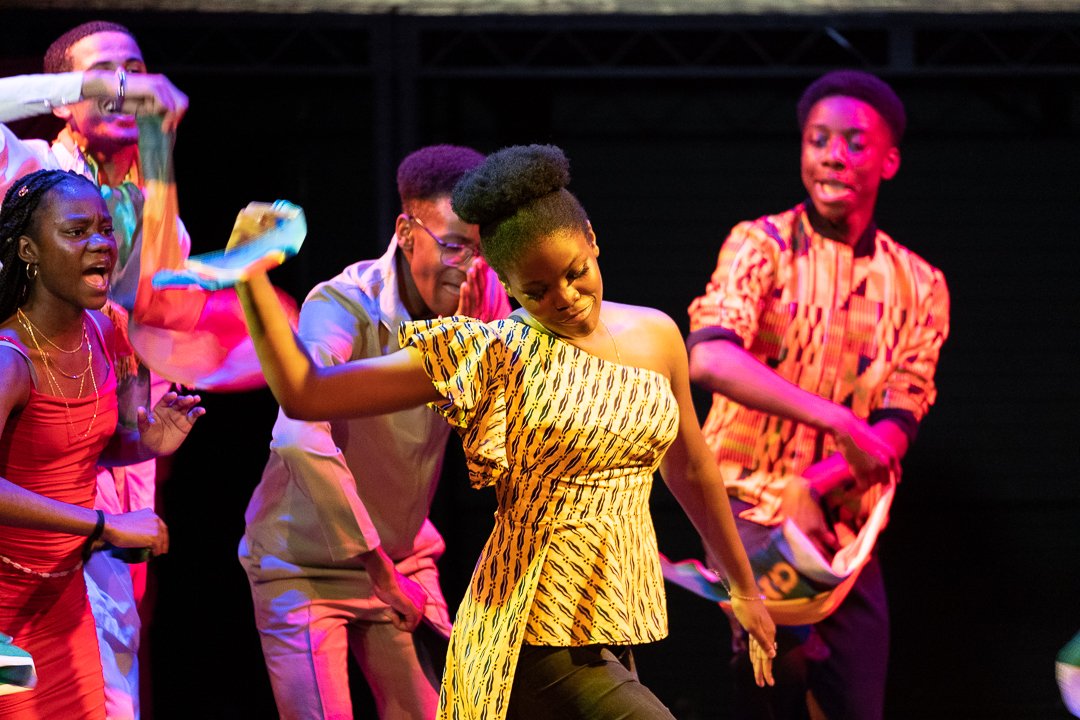Nia’s story
Nia told us about her experience of making #BlackIs… so far.
My role in #BlackIs … we didn’t really have roles. You’re kind of like playing yourself. But basically – my role was – it was just a story about ourselves. We just told stories. Of our personal experiences, things about us that we wanted the world to know.
I told the world about Carnival and how you can have Black trauma and Black joy in the same – you know, in the same play. Love’s scene is about Black people and Black girls and how they are treated. And then my scene was about fun and parties and carnival and it was really, really fun.
In the beginning, we’d come in once a month and have a ‘Black Is’ session and when we got closer to knowing this was going to be a play we started coming in every week. Some sessions we’d write, some sessions we’d play.
I think even before we were making it, we were watching other plays, like Samskara – and other plays with Black people and I was like – oh, I really like that scene and I want to put that in our play. I went to Queens of Sheba with my mum – and I didn’t know at the time we were going to start making #BlackIs…, but after I found out I was like ah, there are so many things in that play. I was like I want to put this in, like the dancing and the meaningfulness and the funny scenes.
Once I found out we were going to be doing it, I wanted people to see that as much as we are young , we’re Black teenagers you know – we haven’t maybe experienced racism in the workplace, but it happens at school, you know, it happens on the streets and I wanted people to realise and see that with our play.
With my carnival scene, I wasn’t expecting it to be in the play at all. It was just something I was talking about randomly. I wrote it down and bam! – it was there. Like random things I would say or things I’d write I’d see it in the script. I think Nuna, Philip and Amber and everyone were really listening to what we were saying. It was like wow, we’ve said all of this, they’ve heard our opinions and what young people go through.
During rehearsals, we’d come together and we’d talk about do we like this scene? Like after scenes and during our breaks. It wasn’t like a ‘let’s sit down do we like this scene’. We’re all friends, so we can say, ‘I’m not really feeling this’. It was important because then we would be able to say the things we didn’t like or things like this rehearsal was so jarring. It gave us the space and the room to be ourselves. Just having the time and the space to be away from the adults.
When we came to the rehearsal part we really buckled down. By the time we had two weeks left we knew what we were doing. The script was done – there were really only minor changes. So when we got to dress rehearsal it was just little small things that Nuna wanted to make better. Which we really loved and appreciated – it wasn’t anything big or hectic that would make us freak out.
When I was doing the costume fitting, there was this top that I put on and I was like I don’t like the way this looks on me. It doesn’t fit me and Sadeysa changed it straight away. That just made me feel like I can say what I want. There was a scene I was doing and I didn’t like the way it was done and it instantly got changed. It made me feel definitely like, reassured talking to Nuna and knowing that even scenes I didn’t absolutely love I knew why they were there so I didn’t need to shy away.
Being together made us – like forced us – to settle our differences, like things that we like or maybe argued about. By the show, we were absolutely hugging each other. We had this backstage thing with us just all together and we were praying – we would hold hands and just pray. Not all of us are religious but it was just like a together thing that we did. It was like, we’re doing this together – if anyone messes up, we’ve all messed up. I mean, we didn’t mess up anyway, but we knew if anything had happened there would be no animosity.
After doing it, I’ve definitely been able to talk about things because I’ve talked about it on stage. It’s been on a stage. It’s been on our stage. Yeah, it’s been talked about and I’m able to get angry about things that I’ve been given permission to get angry about, things that I just don’t feel is right. Like hair touching or certain things that go on the street. I’m allowed – I’m allowed to be mad. I think that doing the play and being in that performance and being with Black people who understand what you're going through as well as being with a Black production team who know what you're going through and they’re clapping or crying or understanding those scenes – we’ve talked about these things so much in our sessions that has now been in a play that has now gone to an audience that they’ve related to our play, because it’s such a big problem. Like my hair’s definitely been touched before and I’ve been like, don’t do that, but now it’s like why are you doing that?
For a couple of things I was like is this just us? Is it just a thing we have a problem with? No, the audience has been like ‘I get that’. They’re coming up to us after, saying like ‘that scene spoke to me’. That shouldn’t be speaking to you and me – we’re different generations, we’re different times. But it’s speaking to everyone, which means it’s not just us. It’s not a new thing. A whole audience of people on different days having the same reaction to the same thing. That’s a problem.
I think if we had done this play when I was in Year seven, there’s absolutely no way - I would have forgotten all my lines, I would have been so unconfident. You could have told me one trillion times you can tell me anything and I wouldn’t have said a word. Being in C3 as like a whole as a company, and having things like even the LGBTQ sessions, that’s important like just knowing that this company supports you, they love you. For me, being in Company Three I’ve been able to be like, this is where my confidence is at and I’ve been able to perform the play to my best.
This play spoke to us. This is personal to us and this is what has made our play what it is. And it is because of us, this is what we've written. This is what we've talked about. This is what we said as a passing comment. Every single scene that we put in this play has been from us.
And I think it was really important that we had Black moments – like Carnival – but we also had scenes with just us, like the park scene. We literally were doing nothing, just eating sweets in a park – it was just a wonderful scene with just us, Black kids, but it wasn’t about us being Black. So it showed the audience that we are Black but life doesn’t revolve around our skin colour, which I think is really important.
Watching the Carnival scene back, because when you’re in it, you don’t know what it looks like – watching it, I was like this scene is so beautiful. I love it because I got to see it because I was on the blocks – and I was like wow, I love this scene, it was just amazing, all the colours. Watching it from the audience perspective, I was like this is exactly what I wanted.






